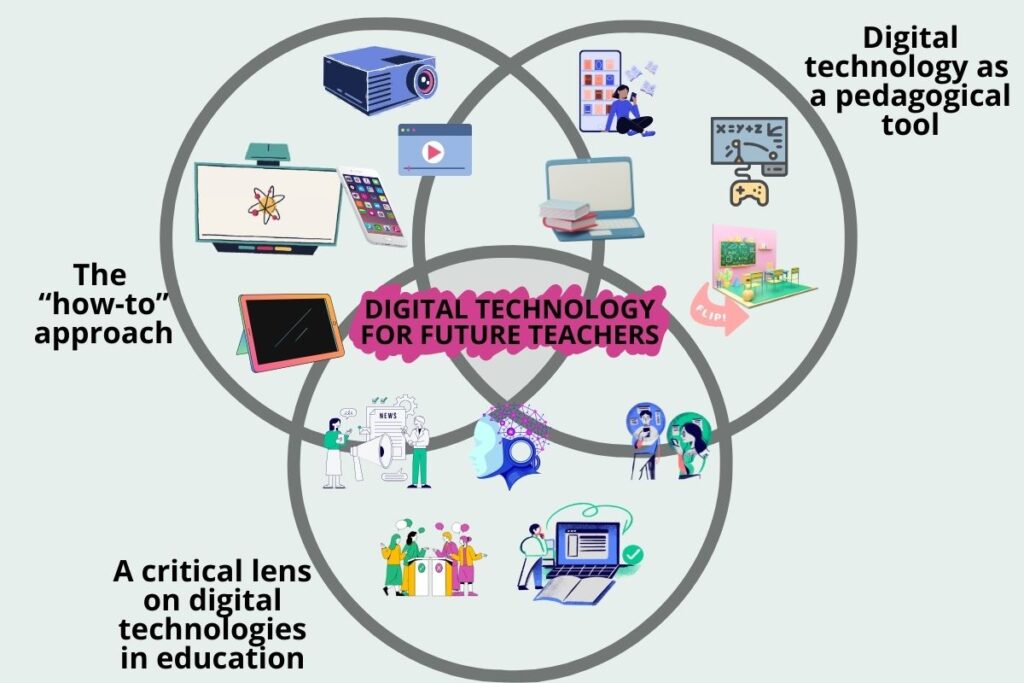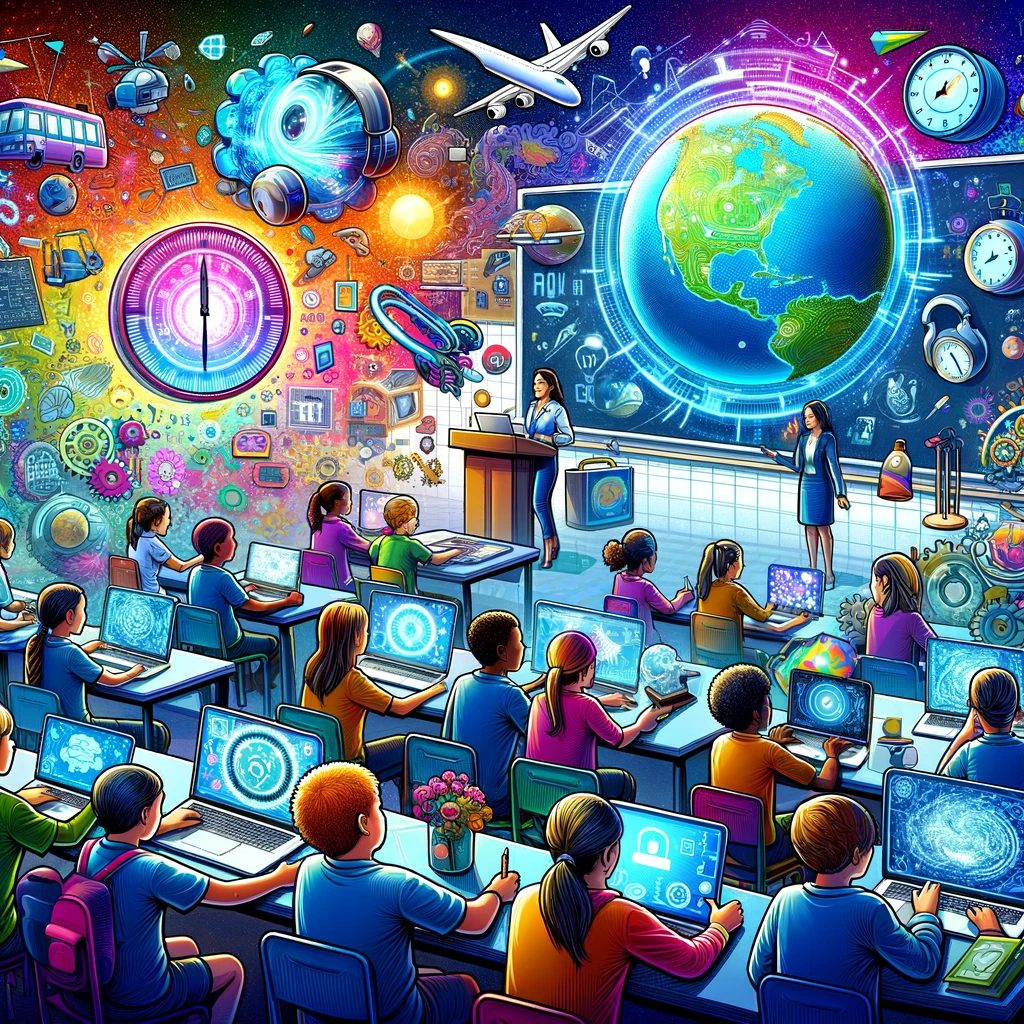By
Paula Lozano-Mulet, Pablo Rivera, Mercedes Blanco, and Carles Lindín
🟨🟥 Versió en català: llegiu aquí
🇪🇸 Versión en español: leer aquí
When we think about preparing future teachers, we often imagine rigorous training in pedagogy, curriculum design, and classroom management. But what about digital skills? In an age where education is increasingly shaped by technology, how well are Spain’s teacher training programs (syllabus) preparing educators for this reality and complex world?

The state of teacher training in Spain
In Spain, teacher education follows a structured-national framework. Those aspiring to teach Early Childhood and Primary Education complete a four-year Bachelor’s Degree in Early Childhood or Primary Education. Secondary school teachers, meanwhile, pursue a Bachelor’s Degree in a subject area followed by a one-year Master’s in Teacher Training.
These programs define a set of core competencies all future teachers must master -but when it comes to technology, the requirements are surprisingly limited. Each teaching degree includes just one competency related to digital technology, with a tendency to focus primarily on its practical application in the classroom. While this is a step in the right direction, it falls short of addressing broader concerns like digital ethics, media literacy, and the societal impact of technology in education.
What we discovered about digital training for teachers
As part of ETH-TECH, we set out to investigate how digital technology is incorporated into Spanish teacher training programs (syllabus). We analysed 38 universities that offer degrees in education and include courses related to technology. What we found was a mixed picture. The courses we examined generally fell into three categories: (1) the “how-to” to approach, (2) digital technology as a pedagogical tool, and (3) a critical lens to digital technologies in education.
(1) The “how-to” approach. These courses focused on teaching future educators how to use specific digital tools (things like interactive whiteboards, multimedia resources, and educational apps). While useful, this approach often treats technology as just another classroom aid rather than a transformative force in education.
(2) Digital technology as a pedagogical tool. Other courses went further, exploring how digital tools can reshape learning through strategies like gamification, flipped classrooms, and online collaboration. This approach emphasized integrating technology into teaching methodologies rather than just learning to use the tools themselves.
(3) A critical lens on digital technologies in education. A smaller subset of courses took a more reflective approach, addressing big questions about digital identity, media literacy, and digital inclusion. These courses encouraged future teachers to consider not only how to use technology, but also why and with what consequences.

The missing piece: ethics and digital
responsibility… where do we go from here?
One of the most glaring gaps we found was the lack of attention to digital ethics. Issues like data privacy, AI biases, and the digital divide are barely mentioned in most training programs. Our research suggests that while Spain’s teacher training system is making strides in digital education, there is still work to be done.
Universities have the flexibility to expand upon the national competency framework, and some institutions are leading the way with more innovative and critical approaches to digital learning. The challenge now is to ensure that all future teachers -not just those in select programs- are equipped with the skills, knowledge, and ethical awareness they need to navigate the digital classroom. The responsibility now falls on universities, policymakers, and educators to ensure a more comprehensive approach to digital literacy and ethics in teacher training. Some institutions are already taking the lead, will others follow? That remains to be seen. But one thing is clear: as artificial intelligence becomes increasingly embedded in education, the ethical implications of digitalization can no longer be overlooked[1].
What do you think? Should digital literacy and ethics play a bigger role in teacher training? Let us know in the comments!

[1] We know there’s a tradition of short courses in teacher training, including in digital literacy. In fact, MIT is holding AI Day (https://dayofai.org/) as an example of Short-Term Intervention.
Leave a Reply